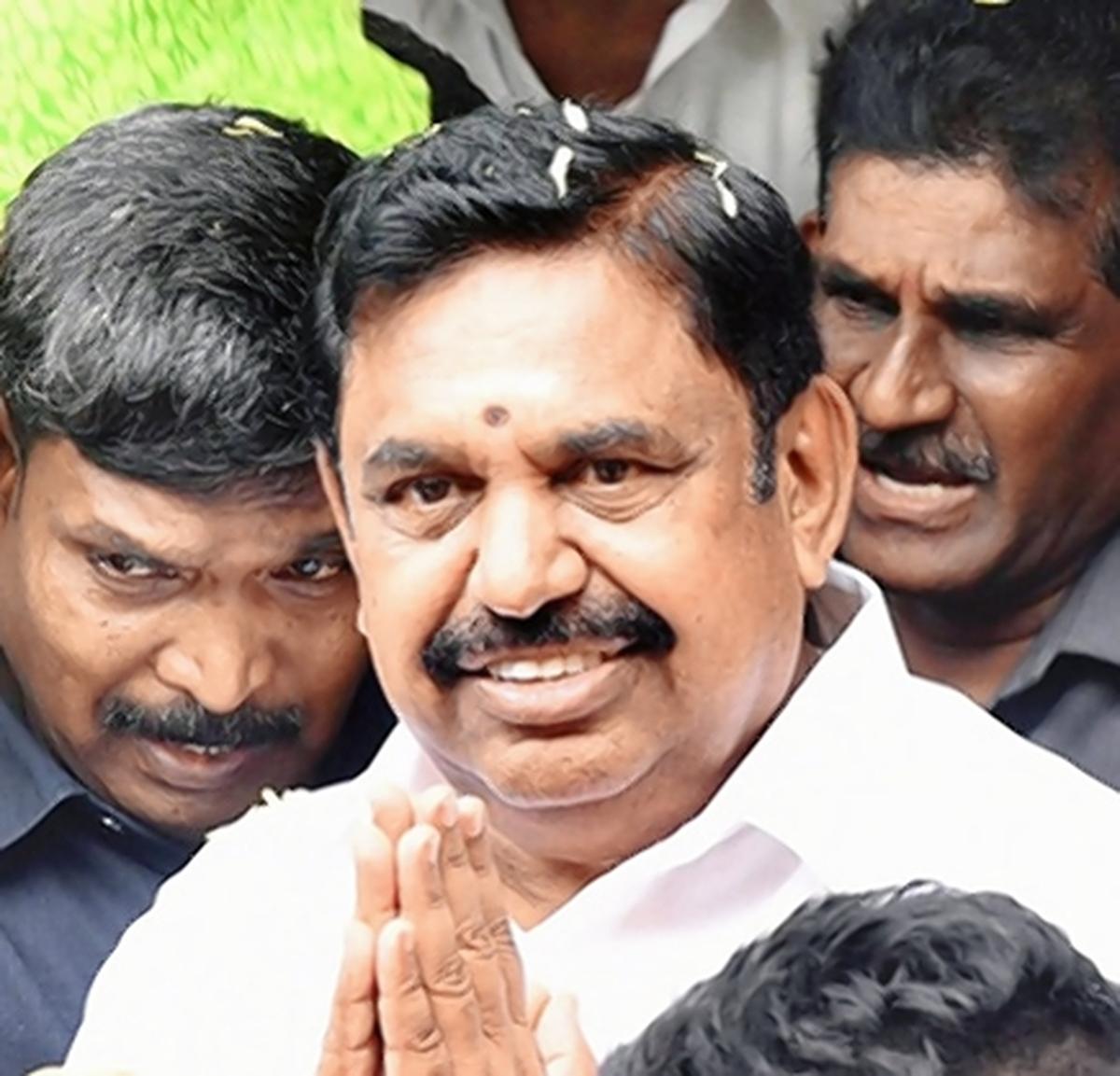
AIADMK leader Palaniswami defends T.N. Governor’s functioning
The Hindu
The Opposition leader said the Governor was performing well and questioning the DMK, which is why the State government was criticising him; his party submitted a memorandum to Governor Ravi alleging corruption by the ruling party and a shortage of drugs at government hospitals among other issues
AIADMK’s interim general secretary Edappadi K. Palaniswami on Wednesday strongly defended the functioning of Governor R.N. Ravi and denied the ruling DMK’s charge that the Governor was interfering with the working of the State government.
“Where is he interfering? Please tell me. As the principal Opposition party, we can present only to him our charges of corruption and irregularities against the government. When he inquires into them, he will come in for criticism,” Mr. Palaniswami told journalists outside the Raj Bhavan, after handing over a memorandum to the Governor against the government, on a host of matters.
Flanked by several senior leaders of the party, the AIADMK’s interim general secretary said “He [Mr. Ravi] has been performing well. It is because of this reason that the DMK regime, which is indulging in corruption, has been screaming [against him]. There must be one individual who would question [the ruling party].. Only he can do so.”
The Opposition leader added: “If he supports them [the ruling party], they will praise him. Otherwise, they will criticise him. It is their routine practice.”
On the Coimbatore car blast, Mr. Palaniswami contended said that had the State intelligence wing acted on an input provided by a Central agency, this [the plot] could have been found out in advance. “Fortunately, as there was no human activity at the place of the blast, there was only one casualty. Had this happened in a congested place, many persons would have died. The intelligence wing knows which places will be hit by terrorism. It has failed to prevent the occurrence of the event. This shows that this government is inefficient.”
To a question on the alleged irregularities in the Cooperation department, the AIADMK leader alluded to the reported observations of Finance Minister Palanivel Thiagarajan and said one of the Ministers himself had validated the charge.
In the memorandum given to the Governor, Mr. Palaniswami raised issues such as shortage of basic medicines and life-saving drugs at government hospitals, drug abuse among students, the destruction of properties of a private school in Kallakurichi district in July and the functioning of illegal bars. He also accused the ruling party of indulging in corruption through various schemes of the government.













